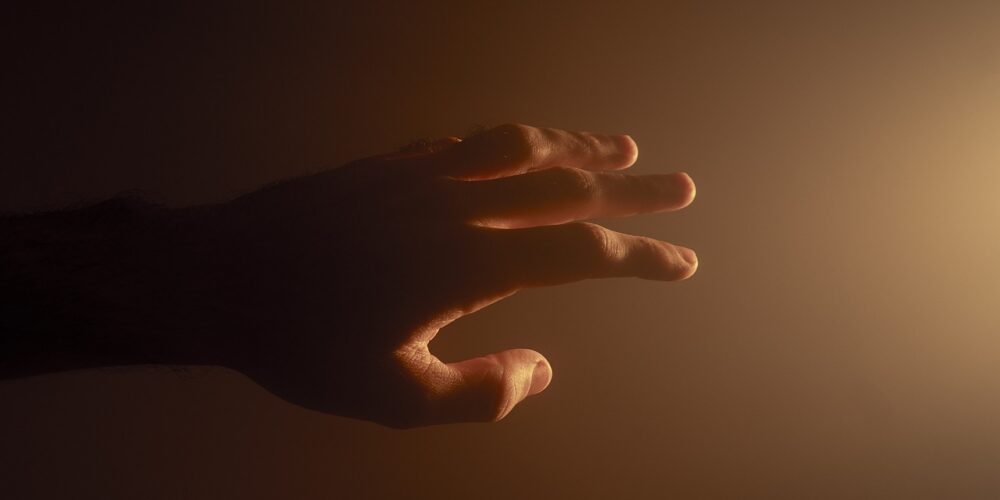From modest beginnings and quiet examples, great initiatives can be born

To be born in a Nairobi slum can feel like being given a life sentence, to exist only in the prison of continuous poverty. We see the poor all around us, and mostly, we look away. Our own lives are difficult enough, we say. It takes all my resources and attention to just look after myself and my nearest and dearest.
There’s nothing left over. I am sorry.
Strathmore University sits right next to the Kibera slum in Nairobi. It could also have looked away from its environs and built yet another walled-off, elite institution. A few folks there sat down and asked a different question: what could we do for our neighbours, with what we already have?
Thus was born the Macheo programme.
The premise was simple: could we bus some school-going kids from the slum over to the university every Saturday, and engage them in remedial classes as well as more holistic mentoring? Because, guess what, we would be using capacity that already exists: a shuttle bus or two, classrooms, and teachers and role models willing to give some of their weekend time towards the uplift of others.
They didn’t overthink the idea; they just got cracking. This after-hours programme has now supported more than 600 students from three underprivileged areas. A current cohort is brought to the university every Saturday from 12.30 to 5.30 pm, and participates in activities that give learning support, character development and life skills. The results? Many kids have been given confidence boosts and guidance, often by teachers and students from the same impoverished areas as them; and many have gone on to qualify for tertiary education.
I highlight this initiative because it’s simple and effective. It’s not over-thought, over-wrought, or over-wieldy. It does not require a complicated strategic plan, large-scale funding, or much hand-wringing. It does not rely on the futile hope of the government doing something. It uses what’s there: extra capacity, willing people. It hews true to the three sentences that I often say are some of the most important ever uttered:
Start where you are. Use what you have. Do what you can.
In Portland, Oregon, an artist and writer named Laura Moulton founded “Street Books,” a mobile library serving homeless and low-income residents. Utilizing customized tricycles, Moulton began by distributing books directly to people living on the streets, aiming to provide access to literature and foster a sense of community. What started as a modest project has grown into a registered nonprofit organization, employing multiple “street librarians” and serving thousands of patrons. This initiative also demonstrates how a simple idea, using available resources, can evolve into a meaningful service.
We can all do this. We don’t have to conceive and design grandiose, well-intentioned projects to solve the world’s many problems. Sometimes, we should just stand up and do something relatively easy. Get going, and learn and improve and iterate from there.
Even in our personal lives, the principle holds. Many of us are not given much, but we are all given a circle of influence, no matter how small. There are many, many people right there in our lives: family, of course; friends, naturally; but also colleagues, employees, vendors, customers, random strangers, hungry creatures. Many of those could do with a boost, and all it might take from you is a few extra bob, a bit of your time to impart guidance, or just an act of kindness that provides the will to keep going. These acts may seem small, even trivial, in the grand scheme of things—but they have the potential to alter someone’s trajectory.
The world doesn’t change through grand declarations or lofty plans alone. It changes because people roll up their sleeves and decide to act. You don’t need perfection, funding, or an elaborate roadmap. All you need is a spark—a willingness to step forward, even in a small way. And if enough of us do that, something amazing can happen.
Nairobi’s Macheo project was inspired by Chicago’s Midtown project. That’s how we humans transmit good ideas and good actions. Sometimes we see them done by others; sometimes we just kick something off ourselves. Sometimes we join in and contribute to good things that are already happening. Sometimes we do something quietly good in our own lives, without any fanfare or even mention.
A quiet act of care, a modest beginning, a simple willingness to try. These are the seeds of change, planted without publicity but watered with good intentions. From the smallest gestures grow the mightiest movements. Greatness begins not in grandeur, but in the humble resolve to do whatever we can, from wherever we are, using only what we already have.
I never forget my late grandfather’s life. He was kind to everyone he encountered. He gave modest loans and small kindnesses to all who worked for him, and even to a whole load of hawkers and street vendors who sold to him. It was a good life, one that did what it could. It inspired me, and if what I write here inspires you, then it was a very impactful life.
(Sunday Nation, 1 December 2024)

Buy Sunny Bindra's new book
The X in CX
here »
Popular Posts
- You are who you hang out withSeptember 28, 2025
- Why your mother was right about your anxietyOctober 12, 2025
- Born knowing the waySeptember 21, 2025
- The balance sheet that mattersOctober 5, 2025
- The art of the CX rescueSeptember 14, 2025















